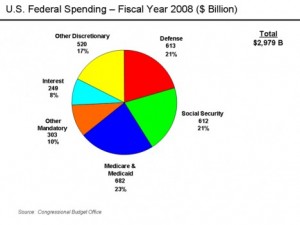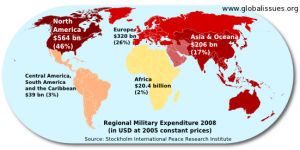I had to go through this language for another purpose, so let’s see how HCR affects recissions and denial of care. (A recission is cancelling the policy, denial of care means denying a specific treatment.)
Here’s the recission language.
‘‘SEC. 2712. PROHIBITION ON RESCISSIONS.
‘‘A group health plan and a health insurance issuer offering group or individual health insurance coverage shall not rescind such plan or coverage with respect to an enrollee once the enrollee is covered under such plan or coverage involved, except that this section shall not apply to a covered individual who has performed an act or practice that constitutes fraud or makes an intentional misrepresentation of material fact as prohibited by the terms of the plan or coverage. Such plan or coverage may not be cancelled except with prior notice to the enrollee,
The denial of care and appeals language is as follows.
‘‘SEC. 2719. APPEALS PROCESS.
‘‘A group health plan and a health insurance issuer offering group or individual health insurance coverage shall implement an effective appeals process for appeals of coverage determinations and claims, under which the plan or issuer shall, at a minimum—
‘‘(1) have in effect an internal claims appeal process;
‘‘(2) provide notice to enrollees, in a culturally and linguistically appropriate manner, of available internal and external appeals processes, and the availability of any applicable office of health insurance consumer assistance or ombudsman established under section 2793 to assist such enrollees with the appeals processes;
‘‘(3) allow an enrollee to review their file, to present evidence and testimony as part of the appeals process, and to receive continued coverage pending the outcome of the appeals process; and
‘‘(4) provide an external review process for such plans and issuers that, at a minimum, includes the consumer protections set forth in the Uniform External Review Model Act promulgated
by the National Association of Insurance Commissioners and is binding on such plans.’’.
I’ve taken a look at the NAIC model reg referenced. As I read it:
If company A denies care or rescinds:
a) the client must appeal to the company itself.
b) if that fails, the client may appeal to an external arbiter. However, either the company has to agree to this or the insurance commissioner has to override the company’s decision. (The criteria are pretty straightforward and making a false negative would be hard to do absent just lying.)
If care is urgent and the doctor agrees the client may skip the internal appeals process and go straight to external appeal, with the same caveat that the insurer must agree or the insurance company must override the decision of the insurer.
Actually, this is pretty decent. The obvious ways to try and game it are:
1) to force as many non-urgent appeals to take the maximum time in the internal review (30 days), then kick them to external (between everything, 3 to 4 months).
2) Snow the external review organizations under by denying as much as possible, and forcing times up. This won’t do squat on recissions, but on denial of care a certain # of people will die (or get better) and that will save some money. You do pay for external reviews, but it’s unlikely to be more than the cost of really sick people’s care.
3) Game the insurance commissioner. The insurance commissioner decides who does the external review. Some reviewers will find for the companies/plaintiffs more than others.
Like any compliance based activity this bill requires the compliance agencies to do their jobs, but actually, this is written fairly tightly. I think, from a strict bottom line perspective, it’ll probably turn out to be worth still trying to deny care to really sick people who aren’t mortally ill, to buy yourself 3 or 4 months worth of surcease from bills. Also, the harder you make it to get care, the more likely they are to drop your company and find a new one, so hassling them into the ground might be good business practice.
In terms of recissions, it really is a matter of the definition of fraud. If forgetting to put anything on the application form or getting something wrong on the form (say getting dates slightly wrong about some illness from 2 decades ago) is fraud, they can still get a lot of people rescinded. If not, and if you can’t deny care due to prior conditions, then why would they be, then in fact it will be damn hard to rescind policies.
Another question is simply of penalties. If I, as a company, simply say “no, I don’t care what the law is I’m not going to obey it”, what is the penalty? As with coal mining companies who simply accept fines as a cost of doing business, it may be worth breaking the law.
The final point is that much of this seems (if I’m reading this correctly) to be handled by the State Insurance commissioners. Some of them are really good (New York, for example). Some of them are captured by the industry or have very few resources.
Bottom Line: Recissions as such are probably a thing of the past once the bill goes into full effect, unless regulators completely fall down on the job. Denial of care will probably still continue, though you’ll eventually be able to force them to give it to you, they can and probably will deny as often as they can to drive down costs and try and drive you to another company, if you’re an expensive (ie. very sick) customer.


